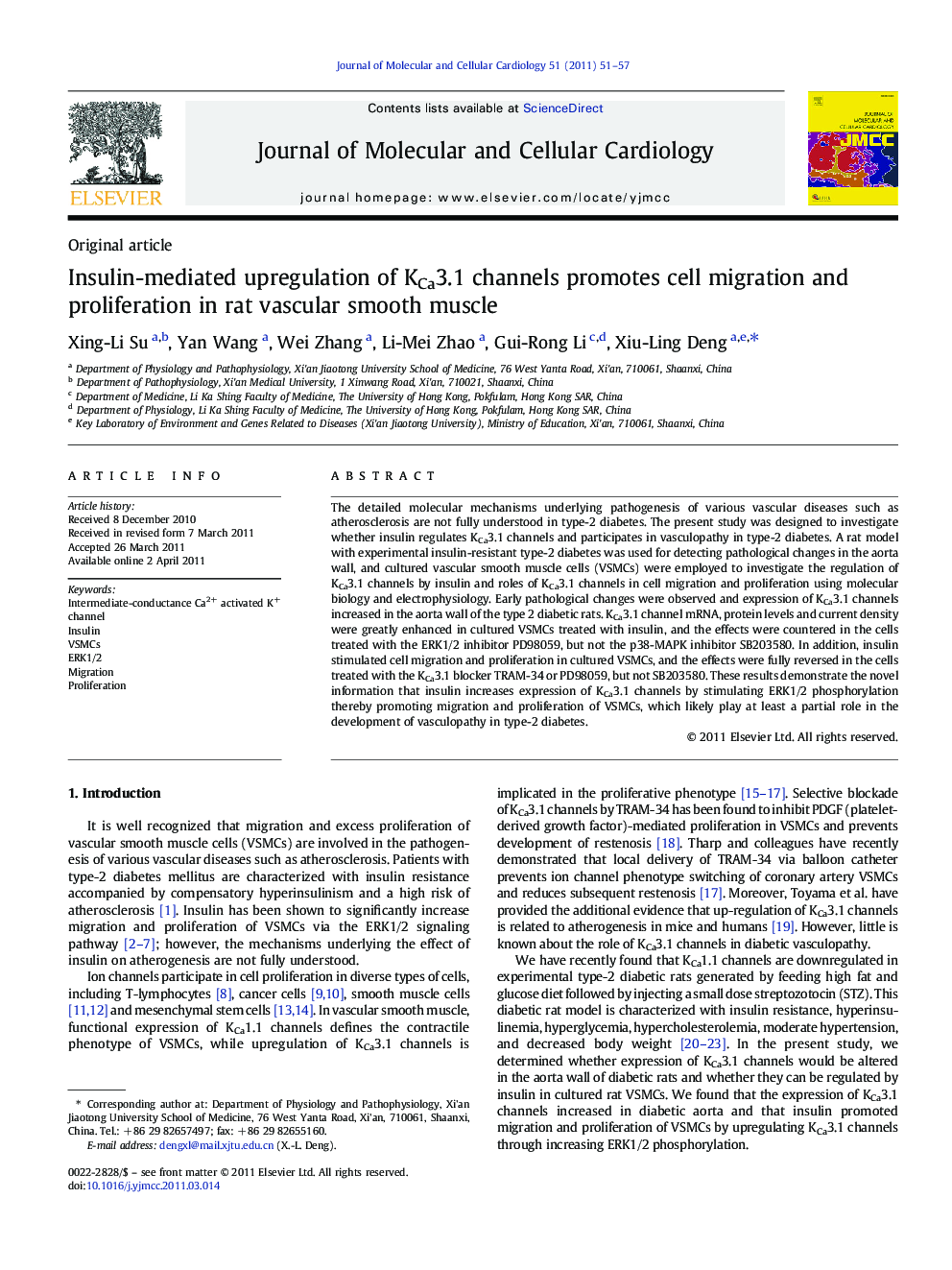| Article ID | Journal | Published Year | Pages | File Type |
|---|---|---|---|---|
| 2190773 | Journal of Molecular and Cellular Cardiology | 2011 | 7 Pages |
The detailed molecular mechanisms underlying pathogenesis of various vascular diseases such as atherosclerosis are not fully understood in type-2 diabetes. The present study was designed to investigate whether insulin regulates KCa3.1 channels and participates in vasculopathy in type-2 diabetes. A rat model with experimental insulin-resistant type-2 diabetes was used for detecting pathological changes in the aorta wall, and cultured vascular smooth muscle cells (VSMCs) were employed to investigate the regulation of KCa3.1 channels by insulin and roles of KCa3.1 channels in cell migration and proliferation using molecular biology and electrophysiology. Early pathological changes were observed and expression of KCa3.1 channels increased in the aorta wall of the type 2 diabetic rats. KCa3.1 channel mRNA, protein levels and current density were greatly enhanced in cultured VSMCs treated with insulin, and the effects were countered in the cells treated with the ERK1/2 inhibitor PD98059, but not the p38-MAPK inhibitor SB203580. In addition, insulin stimulated cell migration and proliferation in cultured VSMCs, and the effects were fully reversed in the cells treated with the KCa3.1 blocker TRAM-34 or PD98059, but not SB203580. These results demonstrate the novel information that insulin increases expression of KCa3.1 channels by stimulating ERK1/2 phosphorylation thereby promoting migration and proliferation of VSMCs, which likely play at least a partial role in the development of vasculopathy in type-2 diabetes.
Research highlights► Expression of KCa3.1 channels is increased in the aorta from type-2 diabetic rats with hyperinsulinemia. ► Insulin-mediated migration and proliferation of VSMCs are related to upregulation of KCa3.1 channels via ERK1/2 signaling pathway. ► Upregulation of KCa3.1 channels by insulin likely plays a role at least in part in the development of diabetic vasculopathy in type-2 diabetes.
